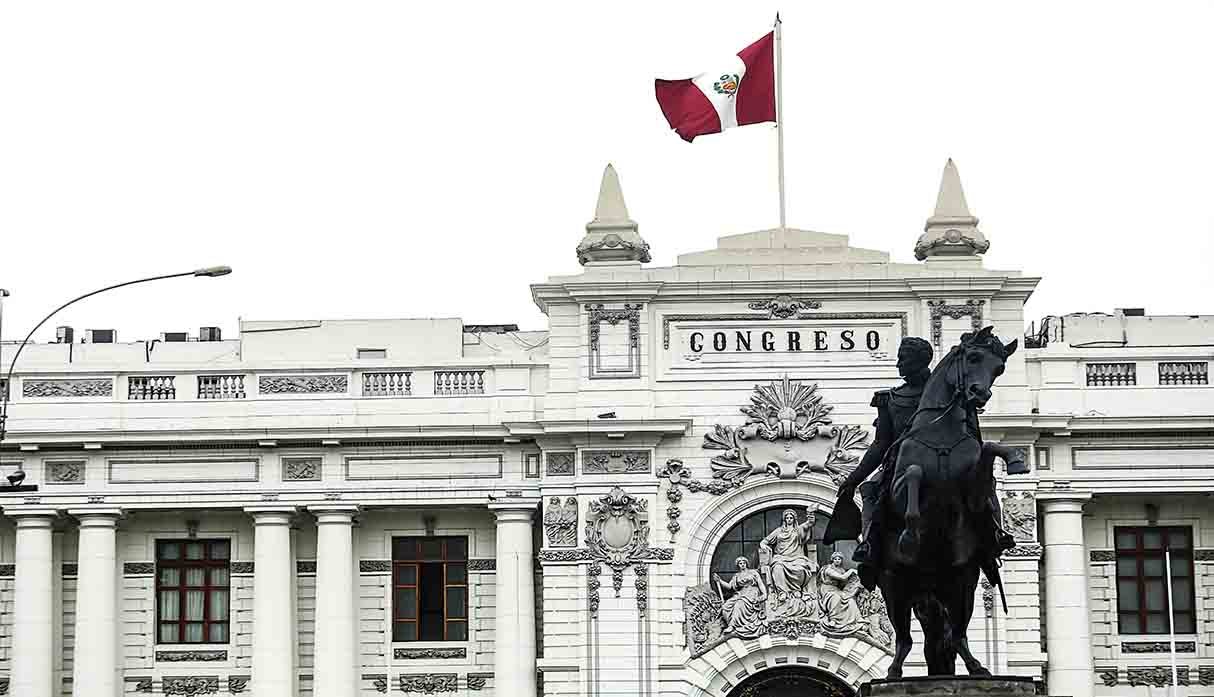They do what they want and when things get difficult, they just have to bring together a dog, a parrot and a cat to achieve their almost always dark interests. From the comfort of their seats, They have approved dangerous bills and regulations with proper names that further encourage citizen distrust.
And they have done so with the complicity of the President of the Republic, who has seen these resolutions pass through her office without the slightest intention of observing them. And when she has dared to do so on one occasion, the parliamentarians have ended up promulgating them anyway. Because, in addition, it is the tenants of Plaza Bolívar who have been able to sustain the continuity of Dina Boluarte in the Government, throwing into the trash any motion of vacancy that has been presented against the president.
Because it is the Parliament and not the head of state that is in charge today. That is the perception that citizens have. 64% of Peruvians believe that Congress has more power in the country at the moment, according to the latest survey carried out by Ipsos for Peru21. 29% believe, on the other hand, that it is the president who exercises greater power.
In Lima, the perception of the power of Parliament rises to 66% and in socioeconomic level A it reaches 80%. In the central region, 42% believe that Boluarte has more power today.
For Ed Málaga, the public perception is correct, although he clarified that if Congress is strong it is because of the weakness shown by the Boluarte Government.
“Congress has more power, not only because of what it appears to be, but because of what it is doing; it is changing many important rules of the game in our political and electoral system in the face of an Executive that shows weakness and a certain submission. Yes, it is a strong Congress, but not only because there are strong interests in itself, it is not a unitedly strong Parliament. We must take into account the internal power relations within Congress,” said the Avanza País legislator to Perú21.
DISAPPROVED PARTIES
Ipsos also asked Peruvians about the work of political parties in Congress and the rejection was overwhelming. The work of the groups was considered negative for the development of the country. Acción Popular, the group from which ‘Los Niños’ were born and which concentrates several complaints about salary cuts and corruption of its members, some of whom have already been expelled from the party of the lamp, is the one that obtains the highest percentage of disapproval. For 68% its work in Congress is negative for the development of the country. Close behind is Alianza para el Progreso with 67% and just behind, with 66%, Perú Libre and Fuerza Popular. 63% believe that the work of Podemos Perú, of José Luna, in Parliament is negative.
An important fact in this survey is that the percentage of those who do not need a response is higher in all cases and above 19%, who consider the work carried out by the parties in Congress to be positive.
“This has a lot to do with the first picture; that is, Congress has a lot of power and on top of that, that power is negative,” explains Málaga. For the legislator, the parties prioritize their own agenda over the interests of the country.
“The work is negative because it is noticeable and evident that the benches, the parties and the owners of the parties prioritize their own agendas over those of the country. This has been seen lately with the election of the Board of Directors and the distribution of the commissions; that is, the development of Peru is in the background and the interests of the parties and benches are above all that. So, obviously that is negative because what we all want is for politicians to prioritize the good of the country,” says the legislator.
This survey includes six political groups, and Avanza País, which now includes Málaga, is the one that receives the least rejection with 59%.
LOOK: Dina Boluarte’s lawyer: “The president answered all the questions from the Prosecutor’s Office”
SALUTE TO THE FLAG
The select meeting called by President Boluarte with different political groups, to which her former ally Peru Libre was not invited, to discuss the political agenda until 2026, has been just a salute to the flag, according to the opinion of the majority of those interviewed by Ipsos. And for 77% of Peruvians these conversations will not help solve the political crisis that the country is experiencing. Málaga thinks the same as those interviewed.
“There are two antagonistic, contradictory situations here. If the president comes to an agreement with parties that prioritize their own interests, then this will not have a positive impact on the citizens and this crisis of representation with the citizens is, I believe, the main cause of the political crisis. If you get along with the parties that prefer their own agenda, you will continue to get along badly with the people; and if you decide to get along with the people, you will not have the support of the political parties. So, these are contradictory interests that are difficult to reconcile,” the parliamentarian explained to this newspaper.
19% of Peruvians surveyed by Ipsos do believe that these meetings will help resolve the political crisis.
Take advantage of Cyber HERE and receive our digital newspaper from S/ 54 for a whole year!
RECOMMENDED VIDEO:


















